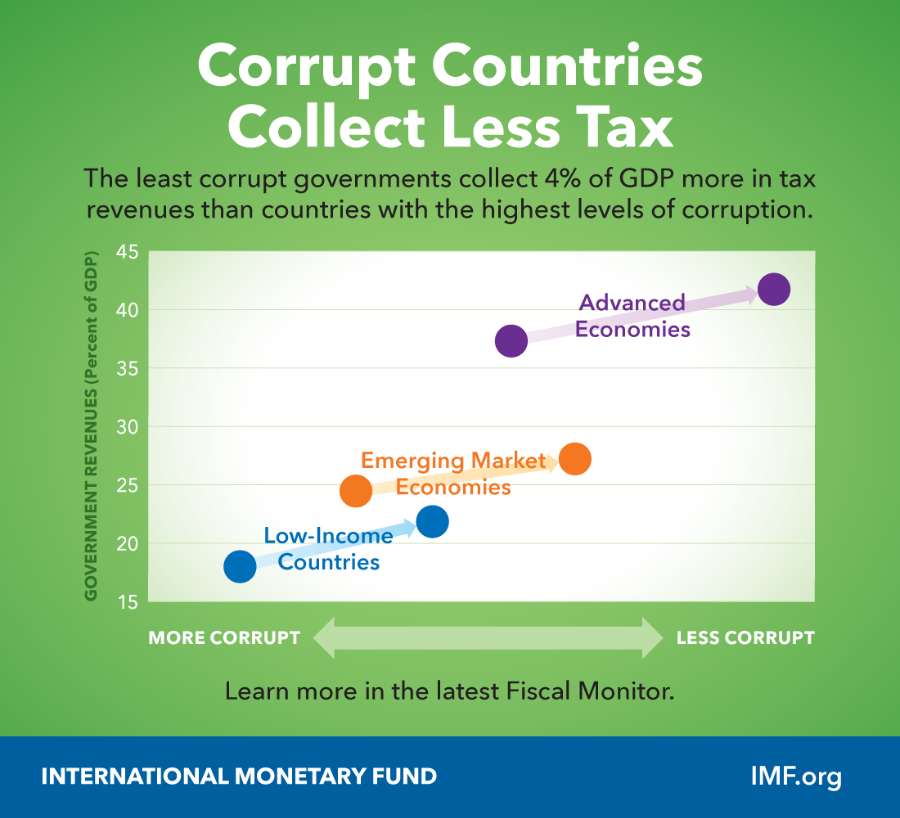Highlights:
- Watch the corruption tax gap
- Half empty or half full
- Would you know a gender-responsive budget?
- Changing the face of mining
- Things to keep you up at night
- Wherefore art thou governance funding?
- TAI spotlight: From TAI 2018 annual report to democracy’s uncertain future
In case you missed it…
Watch the corruption tax gap
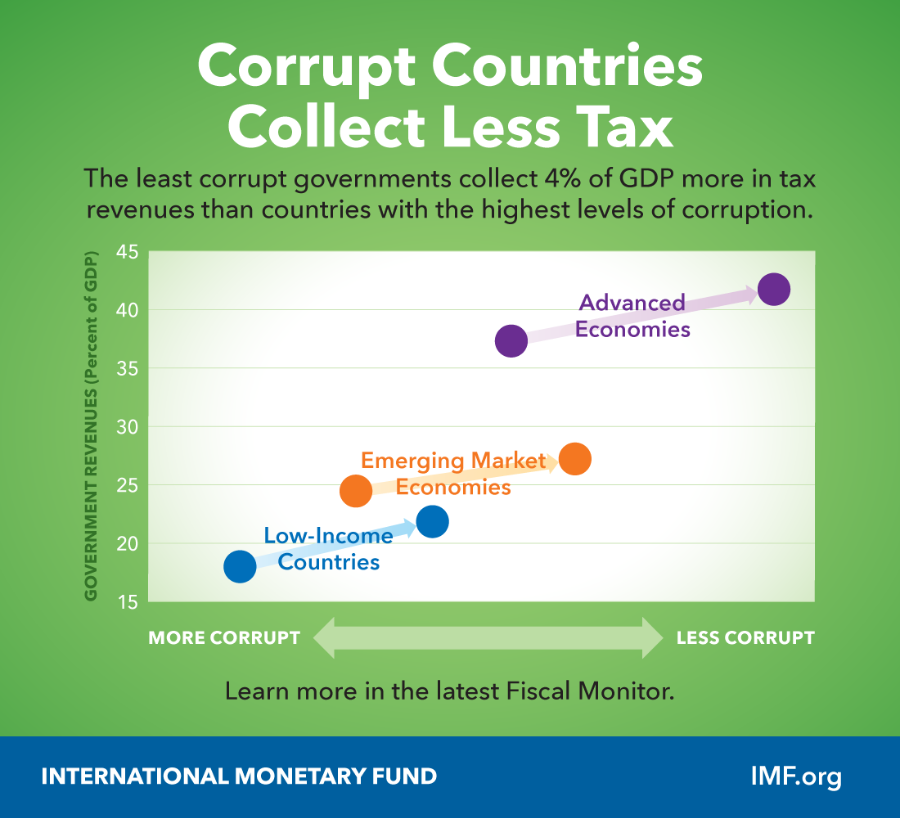 Photo: IMF
Photo: IMF
Timed for release going into this week’s Spring Meetings here in DC, the International Monetary Fund is emphasizing the need for tax administration policies to be a focal point of anti-corruption efforts. Read their Fiscal Monitor or better yet watch Christine Lagarde explain how governments could save $1 trillion in taxes by curbing corruption. We’ll be intrigued to hear any update this week on how many countries the IMF have tagged as having corruption as a fiscally critical issue following last year’s much-publicized new governance framework.
Of course, corruption is not the whole story – multinationals have become adept at avoiding taxes, even perfectly legally. Diane Games highlights the scale of the problem in Africa and points to a failure of governments to invest adequately in institutions, skills, and capacity to increase the size of the formal sector that has further made things easy for multinationals. How to rectify this? She makes a case for tax reforms and improving the business climate to enable companies to grow.
Half empty or half full
It’s hard to believe it’s been three years since the Panama Papers’ release. Transparency International reflects on the progress made since in fighting corruption in global financial networks. They argue that despite some wins, there is a long way to go before we can be confident that governments and international authorities are effectively detecting and preventing cross-border corruption and financial crime.
What is hindering the achievement of open government? According to CISLAC Nigeria, it is surprisingly, pervasive corruption. How can countries fight corruption and strengthen democracy? The CISLAC team argue for a holistic and a joint effort between state actors as well as non-state actors while Jenny Bentley and Saul Mullard make the case of rethinking dominant structures and social norms. What prospect is there for such efforts with Nigeria’s elections now behind us?
Moving now to money laundering. Joseph Kirschenbaum, considers how governments can better walk the fine line between protecting national security via financial transparency without disrupting business. He outlines “The Four Pathways to Financial Influence and How to Increase Transparency Within Them”.
Essential watching
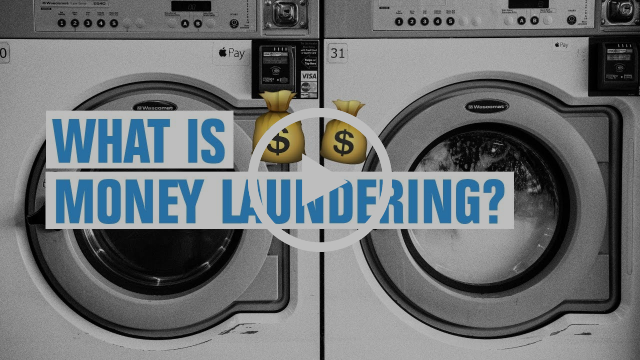
Transparency International provides a helpful video primer for understanding the basics of money laundering. Watch Now!
Would you know a gender-responsive budget?
It’s encouraging to see a growing number of initiatives inspiring governments to adopt more gender-responsive budgeting systems. In this spirit, Public Expenditure and Financial Accountability (PEFA) proposed 21 questions that bring a gender perspective into the different processes for managing public resources, mapped to the existing 31 indicators in the core PEFA framework. Sierd Hadley argues though that there’s little agreement on what ‘good gender budgeting’ looks like. Is putting a ‘gender responsive’ label on all PFM processes the best way to channel scarce reform energies in addressing gender inequities?
Looking more broadly, how can Feminist Open Government (FOGO) be made tangible? Last week, we mentioned Feminist Open Government Initiative awarded grants to five organizations to study exactly this issue. And this week, DCMS and Open Heroines detailed their first workshop on FOGO and shares some reflections on how to go about it. Among the recommendations? Address all, both the social and workplace-based, aspects of gender-based discrimination, including having a system of values coupled with the FOGO movement and exemplifying the benefits of the movement. They also call for inclusion of women’s groups to make government dynamics more equal and encouragement of political participation at all levels. (No low hanging fruit here!)
Changing the face of mining
Do you have a story to share to promote inclusion in mining? Share it with the International Women in Mining (IWiM) who are planning to launch a three-month video storytelling campaign to promote gender equality and inclusion in the mining sector.
Are oil discoveries always a game changer in African countries? Not always argues The Economist – as they pick up on research warning of “presource curse,” where the distortion of politics and economics can happen before the resource is even tapped. How might Uganda minimize such risks? Patience, plus learning the lessons from fellow producers Ghana and Mozambique may be helpful. Judging by discussions at Columbia University’s Executive Session on politics of extractives governance last week, joining EITI will do little on its own.
Things to keep you up at night
In the last Weekly, we highlighted CIVICUS’ State of Civil Society report that detailed serious threats to fundamental freedoms in 111 of the world’s countries. In case you couldn’t get enough of it (or hadn’t had time to dig deep), they’ve now released visual highlights of the report recapped in under two minutes.
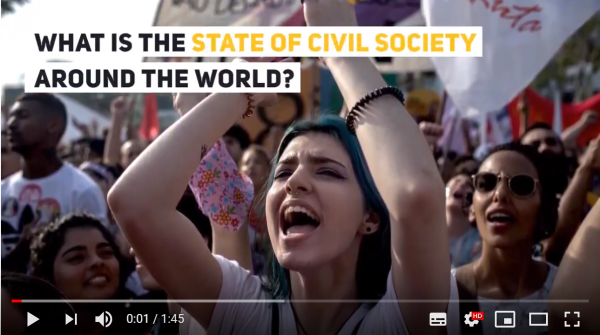
Among the worrying highlights, threats to freedom of free press and information, and the latest investigation of Reporters without Borders will hardly help you sleep better at night – they detail Beijing’s strategy to control information beyond its borders, posing a threat to free press worldwide. Technology is being used to ensnare journalists, but how realistic is it for them to avoid using tech in today’s online press age? Perhaps a topic for the UK sponsored Media Freedom Summit this July.
Indian civil society actors have taken an aggressive grassroots strategy to combat threats to freedom. Mass membership-based collectives are proving most resilient amidst the government’s crackdown on human rights work. Building vast networks and mobilizing people at a community level means these groups are able to spread risk and generate awareness that outlives time-bound projects.
And some positive news out of the Philippines, where the Supreme Court has ordered the release of police records on thousands of killings related to President Rodrigo Duterte’s brutal war on drugs. Civil society groups celebrated the decisions, which they say will allow human rights lawyers to more fully investigate Duterte’s crackdown.
How can funders support the digital security of their grantees in environments of closing civic space? Rowan Reid and Marjorie Rouse from Internews make the case of investing in a “community of safe actors” rather than focusing on the needs of individuals or individual organizations. Such communities would be in-country groups consisting of media and civil society sharing information and best practices around security issues. They further argue that this approach is impactful in bringing sectoral behavior change, collaboration, sustainability, advocacy, and reporting.
The current debates on personal data protection are yet to find rest. Recently the Council of Europe suggested some recommendations to member states on health data protection and privacy. Processing of health-related data should now be done in full respect of human rights, notably the right to privacy and data protection. The guidelines compute a number of rights of data subjects, crucially the transparency of data processing. How do such data privacy concerns play out alongside a commitment to government open data? See how the philosophy of “Open Data for All” in New York turns on the idea that easy access to government data offers everyday New Yorkers the chance to grow and innovate.
Wherefore art thou governance funding?
How can donors stop ‘undercutting chances of success’? Ruth Levine from Hewlett Foundation (TAI Donor member) in an interview with Catherine Cheney lays emphasis on how fundamental to sustained social change it is to support the capacity of self-led organizations. See more on TAI spotlight. Such frank self-reflection is helpful from the donor community, but so is peer review. In that spirit, we asked a few staff working at TAI member donors to share some thoughts provoked by DFID’s new governance position paper (flagged in a recent Weekly). Again more details in the TAI spotlight below.
Feeling inspired by evidence-informed policymaking? Benefit from a curated reading list from Results For All.
Having problems pairing nonprofits with relevant foundations? Little did you know that dating apps would come to your rescue. NAF, GPA, and GrantAdvisor Team have launched Fundr – an app that matches nonprofits and foundations quickly and efficiently (it’s US focused for now).
Are you a Funder or media producer seeking to build impact strategies and evaluate the outcomes of media projects? Take a look at curated impact-related tools, original analyses on impact trends, and a monthly impact newsletter from Media Impact Funders to enrich your work.
Finally, seeking to diversify content and voices, with support from TAI members (Ford Foundation and Hewlett Foundation), From Poverty to Power (FP2P), Oxfam GB Strategic Adviser Duncan Green’s blog, is changing things up. What should this initiative be called? Seems ready made for a Twitter competition.
It’s encouraging to see Feminist Open Government Initiative award grants to five organizations to study what works for gender equality and open government in Colombia, Indonesia, Kenya, Mexico, Nigeria, Peru, Philippines, South Africa, and Tunisia. Elsewhere, the Nigerian Finance Minister calls for more gender-balance in management roles in the extractives sector, which she argues will help ensure women enjoy greater benefits from extractive projects. Bill & Melinda Gates Foundation release their global framework for advancing women’s economic empowerment and Laura Amaya, Clare Schroder, Sandra Medrano, Alexandra Geertz make a case for engaging men and boys in the struggle to work toward gender equality.
Have you already started working on diversity, equity, and inclusion in your everyday operations? Maria Hernandez offers some new practices and behaviors you will need to adopt to integrate diversity, equality, and inclusion. The work of inclusive leadership teams, creating a culture of inclusion, setting clear expectations, and aligning the mission to advance equity. If you struggle to think how this might apply to your organization and mission, Vu Le has an answer for you.
TAI spotlight
TAI 2018 annual report | TAI
We released our annual report last week featuring how we are working towards getting to greater than the sum of our parts. Check out our highlights, lowlights, and learnings of 2018.
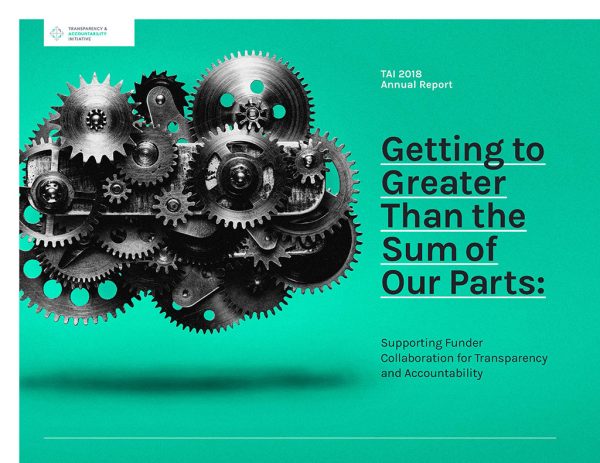
Reflections on DFID’s new governance position paper | TAI
What is the cutting edge of governance programming these days? Read individual donor reflections sparked by DFID’s positioning.
Real equity means including PWDs in philanthropy | Ford Foundation
Rich Besser and Darren Walker challenge philanthropists to never again relegate disability-related issues and completely ignoring people with disabilities.
Population Action International (PAI) | Hewlett Foundation
Hewlett Foundation gives a grant of $2,000,000 to PAI in support of their work on improving government accountability for family planning services and supplies in Africa. Read why.
Ruth Levine Q &A | Hewlett Foundation
Our Chair, Ruth Levine, Director at Hewlett, reflects on her groundbreaking portfolio at the Foundation and shares lessons learned on better philanthropy.
Delivering overseas aid programmes | DFID
DFID has offered assurance it would continue delivering aid programmes even in the face of a no EU – Brexit deal.
Nigerian democracy’s uncertain future | Open Society Foundation
Udo Jude Ilo argues that while the election results could be viewed as a travesty for Nigeria its more of a warning sign to advocates of democracy and open society everywhere.
Calls: Proposals, papers, speakers and course invites
- ARC Crowdsourcing Cases of Sandwich Strategies – April 30
- Public Consultation: Review of the 2009 OECD Anti-Bribery Recommendation – April 30
- Fostering Latin America’s Next Generation of Feminist Leaders – May 3
- 2019 Call for projects for Paris Peace Forum – May 13
On the calendar
- Email Marketing for Nonprofits Bundle
- Storymakers – Digital Storytelling for Beginners
- World Bank Group and Internal Monetary Fund Spring Meetings – April 8-14, 2019 (Washington, DC)
- Fighting Inequality: Changing the Terms of the Debate & Enacting Big Ideas – April 9, 2019 (Washington, DC)
- Filling the SDG’s Funding Gap – April 11, 2019 (Washington, DC)
- The CEP Conference – May 7-9, 2019 (Minneapolis, USA)
- Csv, conf, v4 – May 8-9, 2019 (Eliot Centre, Portland)
- 2019 Forum to Advance Women’s Leadership in the Global Development Sector – May 14, 2019 (Washington, DC)
- Collective Impact Forum Convening – May 14-16, 2019 (Chicago, USA)
- Policy Dialogue Day 2019 – May 22, 2019 (Gothenburg, Sweden)
- 2019 Open Government Partnership Global Summit – May 29-31, 2019 (Ottawa, Canada)
- Women Deliver 2019 Conference – June 3- 6, 2019 (Vancouver, Canada)
- RightsCon Tunis – June 11-14, 2019 (Tunis, Tunisia)
- InterAction Forum 2019 – June 11-13, 2019 (Washington, DC)
- Global Conference on Transparency Research – June 26 – 27, 2019 (Rio de Janeiro, Brazil)
- Tax Justice Network Conference 2019 – July 2 -3, 2019 (City, University of London, UK)
- Global Symposium (COPGS) on Citizenship, Governance, and Accountability in Health – October 15-18, 2019 (New Delhi, India)
